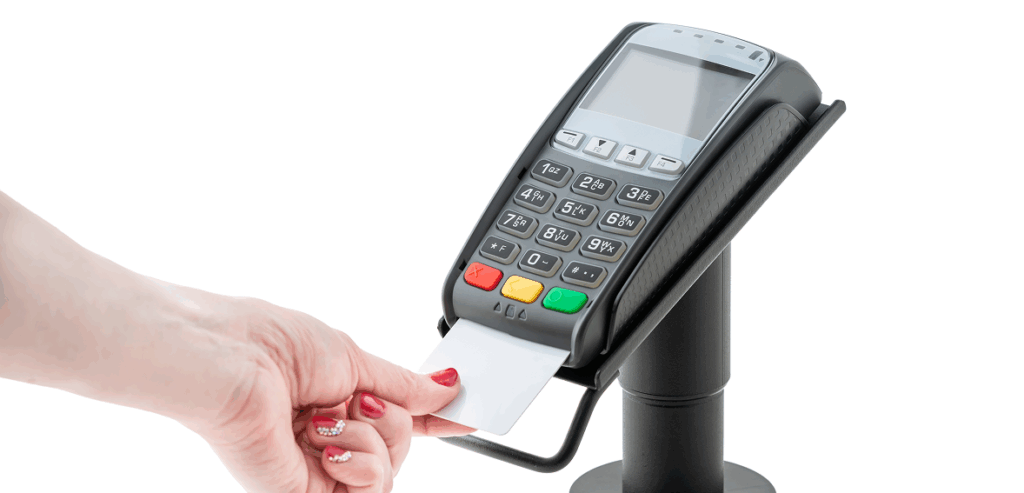
By Sharon Santos July 15, 2025
As the aesthetic services industry continues to evolve, the importance of secure payment processing cannot be overstated. Med spas, dermatology centers, and beauty clinics increasingly rely on digital transactions for convenience and efficiency. However, with this shift comes the responsibility of safeguarding customer data and maintaining compliance with key regulations. One of the most critical standards is the Payment Card Industry Data Security Standard (PCI DSS), which applies to all businesses that handle credit and debit card information.
PCI compliance is not optional. It protects client data, safeguards the business from financial penalties, and builds long-term trust. For aesthetic businesses that deal with high-ticket treatments and repeat clientele, failing to meet PCI standards can result in data breaches, legal issues, and loss of reputation.
What Is PCI DSS and Why It Matters
To understand how PCI compliance affects the aesthetic industry, it is important to first clarify what the standard involves and who it applies to.
Definition of PCI DSS
The Payment Card Industry Data Security Standard is a set of requirements developed by the PCI Security Standards Council. It was created to ensure that all businesses that store, process, or transmit cardholder data maintain a secure environment. This includes both in-person and online payments, making it highly relevant for med spas and beauty clinics offering packages, appointments, and virtual consultations.
Who Needs to Be Compliant
Any business that accepts credit or debit card payments must comply with PCI DSS. Whether your clinic processes a few hundred transactions a month or manages multiple locations with thousands of clients, you are required to meet the standards laid out in the PCI framework. Failure to do so can result in penalties, increased processing fees, or even the revocation of the ability to accept card payments.
Unique Compliance Risks for Aesthetic Service Providers
While PCI standards apply across industries, aesthetic businesses face specific risks due to the nature of their services and client interactions. These risks make it even more important to implement proper safeguards and use compliant systems.
High-Value Transactions
Med spas often charge several hundred to thousands of dollars per treatment. These high-value transactions are attractive to fraudsters. A single breach could compromise card data across a large financial footprint, making the industry a potential target for cyberattacks.
Recurring Billing and Stored Cards
Memberships, prepaid packages, and subscription plans are common in the aesthetic space. These models require storing cardholder data or automating charges, both of which demand strict encryption and secure processing. Using a PCI-compliant gateway ensures that stored payment data is tokenized and protected at all times.
Remote and Online Payments
Many clinics now allow clients to pay deposits online, book appointments via third-party platforms, or access post-treatment invoices remotely. Each touchpoint adds potential vulnerabilities if not properly secured. Ensuring merchant gateway security across all digital channels is essential for compliance.
The Core Components of PCI DSS
There are twelve major requirements under PCI DSS, categorized into six core goals. Aesthetic businesses may not need to implement all twelve directly, depending on their card processing volume and method, but understanding the structure helps guide decisions.
Build and Maintain a Secure Network
Clinics must use firewalls and secure routers to prevent unauthorized access. Default passwords on devices or terminals must be changed immediately. These basics form the first line of defense against threats.
Protect Cardholder Data
Stored cardholder data must be encrypted. If card information is stored in client profiles or reused for recurring billing, the system must tokenize the data. Data in transit should also be encrypted using secure protocols.
Maintain a Vulnerability Management Program
Antivirus software, system updates, and vulnerability scans are mandatory to protect against known threats. Any software used for payment processing should be maintained and patched regularly.
Implement Strong Access Control
Only authorized staff should have access to payment data. Role-based permissions and unique login credentials reduce the risk of internal data breaches. Aesthetic clinics must ensure their POS systems can separate access by job function.
Monitor and Test Networks
Audit logs and regular testing help identify breaches or vulnerabilities early. Med spas should ensure that their payment systems provide activity logs that can be reviewed when suspicious behavior is suspected.
Maintain an Information Security Policy
Staff should be trained on security best practices, including how to handle card information and avoid phishing scams. Clinics must have policies outlining responsibilities and procedures for compliance.
Choosing the Right Tools for PCI Compliance
Compliance is much easier when the right technology partners are chosen. Aesthetic clinics should look for systems and vendors that understand the unique workflows of their business.
Selecting a PCI-Compliant Gateway
Not all payment processors offer the same level of security. A PCI-compliant gateway is one that follows strict guidelines for encryption, data handling, and user authentication. It should support both card-present and card-not-present transactions while ensuring secure storage and retrieval of payment data.
Using Tokenization and Encryption
Tokenization replaces sensitive card data with a random token, which is useless if intercepted. Encryption scrambles data so that only authorized systems can read it. Both are critical for protecting stored cards used in recurring billing or mobile checkouts.
Avoiding Local Storage of Card Data
One common mistake is storing credit card numbers in spreadsheets, appointment notes, or unsecured databases. Even with password protection, this practice violates PCI rules. All payment data should be handled exclusively through secure, compliant systems.

Role of POS Systems in Compliance
The point-of-sale (POS) system is the heart of any payment process in a clinic. The right POS can support compliance by limiting data exposure and ensuring secure end-to-end processing.
EMV and Contactless Payment Support
Modern POS devices that accept chip cards and mobile wallets reduce the chances of data being skimmed or stolen. EMV transactions are encrypted and more secure than traditional magnetic stripe swipes.
User Role Management
A compliant POS allows different permission levels for staff. A receptionist can schedule appointments and accept payments, but only managers can issue refunds or view full financial reports. This minimizes exposure of sensitive data.
Automatic Updates and Patch Management
Cloud-based POS systems are often updated remotely by vendors. This ensures that clinics are always using the latest version with the most recent security patches. Manual updates are risky as they rely on staff remembering to install them.

Training Staff on Best Practices
Technology alone does not ensure compliance. Human error remains one of the biggest threats to payment security. Staff at med spas and beauty clinics need to be trained in handling payment data responsibly.
Recognizing and Preventing Fraud
Team members should be trained to recognize suspicious behavior, such as repeated declined transactions or mismatched names on ID and card. They should also verify signatures or IDs when required and follow established protocols for chargebacks.
Securing Workstations
Payment terminals should never be left unattended or shared across workstations without proper logout procedures. Staff should be reminded not to write down card numbers or store them in booking notes.
Understanding What Not to Do
Employees must never store credit card numbers in spreadsheets, email them, or type them into unsecured forms. Even if done with good intentions, such actions can expose the clinic to breaches and non-compliance.
What Happens When a Clinic Is Not Compliant
The consequences of PCI non-compliance can be severe, especially in an industry where privacy and trust are key drivers of repeat business. Financial penalties, processing limitations, and legal liabilities can arise from failure to secure card data properly.
Fines and Fee Increases
Payment processors may impose monthly non-compliance fees or even raise transaction rates until compliance is achieved. In case of a breach, businesses may be fined by card networks or banks involved.
Loss of Client Trust
Clients who learn their data was compromised may stop doing business with the clinic. In industries focused on personal care, word-of-mouth is critical. A data breach can seriously damage the brand and reputation of even well-established med spas.
Business Disruption
In the event of a breach or audit failure, processors may suspend card processing capabilities. This can lead to days or even weeks of business disruption, especially for practices heavily reliant on card payments.
Regular Self-Assessments and Audits
PCI compliance is not a one-time certification. It requires ongoing assessment and improvement. Businesses are expected to complete self-assessment questionnaires and undergo periodic scans or audits depending on their processing volume.
Self-Assessment Questionnaires
There are several versions of the PCI SAQ, each tailored to different business models. Aesthetic clinics typically use SAQ A, A-EP, or D, depending on how payments are processed. Completing this questionnaire annually is required to maintain good standing.
Quarterly Vulnerability Scans
If the clinic’s website or terminal is exposed to the internet, PCI may require quarterly vulnerability scans by an approved scanning vendor. These scans identify outdated software, open ports, or weak configurations.
Internal Compliance Reviews
Clinic owners and managers should also review internal processes regularly. This includes checking that POS devices are functioning securely, no unauthorized data storage is occurring, and staff remain aware of compliance procedures.
Benefits Beyond Compliance
While maintaining PCI compliance is a legal and contractual obligation, it also offers broader business advantages. Investing in secure systems and protocols contributes to smoother operations, increased client trust, and fewer financial disruptions.
Reduced Risk of Breaches
Compliant systems are less likely to be targeted by hackers. Even if they are, the use of encryption and tokenization limits what can be stolen. This reduces the potential impact and liability in case of a cyber incident.
Improved Efficiency
Systems built with security in mind often offer other workflow improvements. Secure online booking, recurring billing, and real-time reconciliation reduce time spent on manual tasks and allow the clinic to focus on care delivery.
Enhanced Client Confidence
When clients know their card information is secure and that your clinic follows high standards, they are more likely to return. This is especially important for med spas offering long-term programs or memberships.
Conclusion
For med spas and aesthetic clinics, PCI compliance is more than a checkbox. It is a critical component of business integrity, client trust, and financial health. As the industry continues to modernize and adopt digital tools, ensuring that payment systems meet security standards becomes even more essential.
From choosing a PCI-compliant gateway to training staff and maintaining secure infrastructure, every aspect of the clinic’s payment process should reflect a commitment to compliance. This not only protects sensitive client data but also strengthens your brand and ensures uninterrupted service delivery.
By making PCI compliance a regular part of operations, aesthetic businesses can confidently navigate the digital economy while safeguarding what matters most—their clients, their reputation, and their growth.
FAQs
What is PCI compliance and who needs it?
PCI compliance refers to the standards set by the Payment Card Industry to protect cardholder data. Any business that processes, stores, or transmits credit card information, including med spas and beauty clinics, must be compliant.
Do aesthetic clinics need to be PCI compliant if they use third-party platforms?
Yes, even if a third-party booking or payment tool is used, the clinic is responsible for ensuring that the platform is PCI compliant. The business must also ensure that its own practices, such as storing data or staff access, align with the requirements.
How can med spas ensure they are PCI compliant?
They should use a secure payment processing system with tokenization, avoid storing card data locally, ensure staff are trained on best practices, complete the required self-assessment questionnaires annually, and conduct regular vulnerability scans if needed.